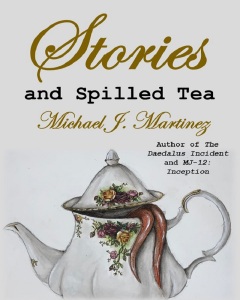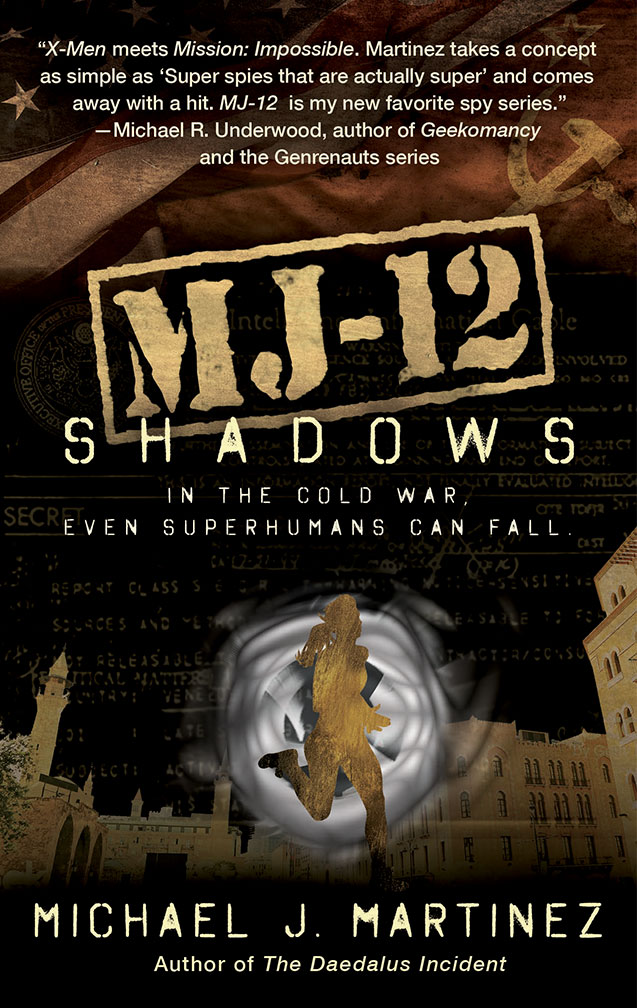Picture this: The U.S.S. Enterprise (D) is facing some sort of massive problem that threatens the existence of the ship, crew and Life As We Know It. The legendary Jean-Luc Picard stands up from the captain’s chair, stares into the viewscreen and gives a fateful order.
“Conference,” he intones.
And everyone files out off the bridge — in the middle of a crisis — and heads back to the conference room, with its plush chairs and lovely views of space. Everyone sits down and begins to share information. Data expounds, Worf says something crochety, the counselor lady gets all new-agey, and Picard then makes a command decision. It’s all very civilized. If cappuccinos weren’t involved, they should’ve been.
As an impressionable teenager in the late 1980s, this was my main diet of science fiction. And it seemed perfectly reasonable, at the time, to see these characters hash out their problems in a calm, orderly fashion.
Fast forward 20-plus years. I’m writing a science-fiction/alternative history novel. And when there’s a problem, my characters react…by putting their heads together and talking it out.
Oy vey.
Now, in everyday life, this is what people do. They come together, hash it out, make a decision and act. But I’ve learned — with difficulty, at times — that this doesn’t exactly make for compelling reading. In fact, the reader gets bored while waiting for something more interesting to happen.
This might sound pretty much like Creative Writing 101. Problem is, I never took Creative Writing 101. In school, I was on the journalism track. And what do we do in journalism? We use quotes for color and exposition. My wife Kate, who actually took creative writing in addition to having a broad journalism background, says she’s gotten lost in my dialogue. And my agent Sara has been urging me for a few revisions now to get the dialogue under control and turn up the action/mayhem meter.
So. I’ve had to figure out when dialogue is appropriate, and when it can be replaced with something more active — and something shorter, too. Honestly, I don’t have all the answers yet. I’m now in my fifth revision, hopefully the last, and the dialogue issue is one of the last things I need to tackle. Guess I’ll let you know how it turns out — succinctly, of course.












Cool post! As a writer of heavy-dialoguey books and a gov’t worker, I’m not totally sure what the problem is (hehe – just kidding), but I’m very happy you’re a Trekkie. Make it so!
Anyway, back to dialogue, I like to use it to develop characters as well as move along the action. I guess it all depends on what kind of book it is. It either works or it doesn’t, I suppose.
I went back to DS9 after becoming an obsessed fan of Firefly. I was in the mood to watch the Federation go to war with the Klingons, but figured I’d start from season one. And that’s when “Star Trek Action” threw a cold bucket of water on me. Star Trek Action is pressing buttons and speaking faster, often with an increase in technical mumbo jumbo. If it’s REALLY intense, they’ll speak faster and raise their voices.
I didn’t make it very far into DS9 or any other Star Trek offering since (I can still watch First Contact but that’s about it). Science fiction or no, when it’s time for the action, I want there to be action. The conclusion of the pilot episode of Firefly where Mal settles the stand-off between Dobson and Simon? Yeah, that’s how to do it.
I nodded through your whole post, Mike! I come from a journalism background too and never took a class about how to write fiction. The last manuscript I sent to Sara she said, “too much talking.” I’m glad I’m not the only one who struggles with it. 🙂
What influenced you growing up, hearing dialogue on TV versus reading Milton, can be key, perhaps more so than a class. Fiction dialogue really needs to zero in on the problems at hand plus you have the freedom to go inside people’s heads. TV is more dependent on dialogue to communicate what’s going on. And dialogue is used so differently by authors. Gabriel Garcia Marquez barely uses dialogue. And Kazuo Ishiguro uses dialogue but it’s unclear to the reader if you can even trust the words of the narrator.